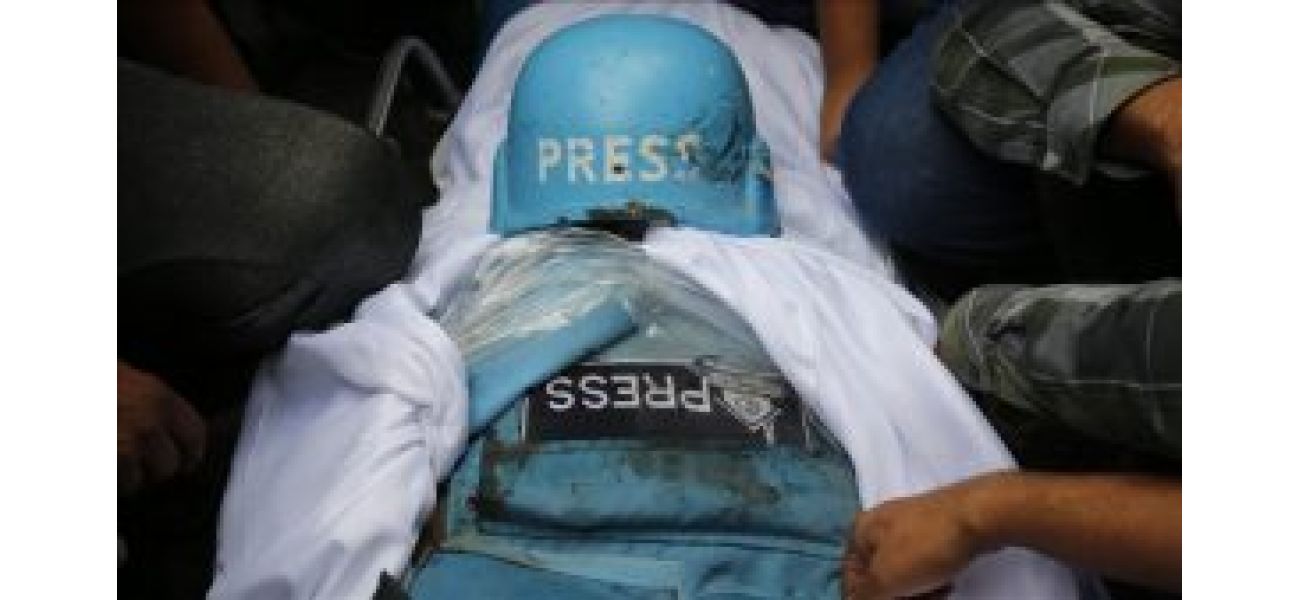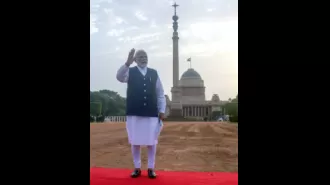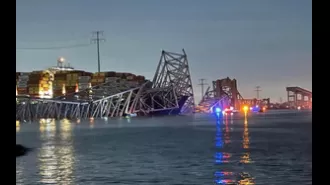Punishing the bearer of bad news.
Journalists are among the most affected by the ongoing violence in Gaza, as they risk their lives to uncover the truth in conflict zones.
September 2nd 2025.

The ongoing violence and destruction in Gaza has taken a toll on not just the physical landscape, but also on the truth and those who seek to uncover it - journalists. It's a sad reality that in the midst of war, those who have chosen to report on the front lines are at a high risk of becoming victims themselves.
Unlike wars of the past, modern warfare makes it nearly impossible for those operating artillery or dropping bombs from a distance to accurately identify who is in a specific location at the time of the attack. This has resulted in an alarming number of casualties among journalists in Gaza, something that the media has never seen before. To bring attention to this issue, multiple media outlets organized a protest on September 1st, demanding that Israel stop targeting journalists and allow international press into the area to report freely.
Over 250 outlets from 70 countries participated in the protest, each using their own unique methods to make their voices heard. Some newspapers ran blacked-out front pages, while broadcasters and online outlets disrupted their programming and home pages. The goal was to shed light on the growing number of journalists who have been killed during the conflict in Gaza.
According to the International Federation of Journalists, at least 210 journalists have lost their lives since the start of the conflict in 2023 - making it the deadliest conflict for reporters in modern times. The situation is made even more dire by the fact that the Israeli government has restricted access for international media, leaving Palestinian journalists to risk their lives while trying to report on the ground. The Director General of Reporters Without Borders, Thibat Bruttin, expressed concern that if journalists continue to die at this rate, there will soon be no one left to tell the world what is happening. This is not just a war on Gaza, but a war on journalism itself.
While the death toll among civilians in Gaza is already staggering, journalists are also putting their lives on the line to report on the starvation and famine that is plaguing the region. As the protesters rightfully stated, journalists are risking their lives to report, while others are risking their lives just to avoid being hit by missiles and bullets.
The Committee to Protect Journalists has been documenting the conditions that journalists are working under in Gaza. They have concluded that these killings are not accidental, but rather a deliberate effort to silence and eliminate those who are trying to expose the truth. Palestinian journalists are being directly targeted, threatened, and even detained and tortured in retaliation for their work.
Despite the unbearable conditions they face - hunger, exhaustion, and the constant fear of being killed - journalists in Gaza continue to report and defend the truth. Many have been separated from their loved ones or have lost loved ones themselves, but their determination to uncover the truth remains unwavering. However, in a situation like Gaza, it's difficult to determine what the truth really is. One of the journalists who lost his life was Anas Al-Sharif, a well-known Palestinian journalist who became a household name for his daily coverage of the conflict and its impact on civilians.
Just last week, five more journalists were killed in strikes on Nasser Hospital in Khan Younis. Israeli Prime Minister Benjamin Netanyahu called it a "tragic mishap," but this is a pattern that has been repeated before. Israel often justifies these killings by claiming that the journalists were working for Hamas, but they have yet to provide any evidence to support this claim. As Jodie Ginsberg, CEO of the Committee to Protect Journalists, has pointed out, international law is clear - only active combatants can be targeted during war. Being a media advisor for Hamas, past or present, does not make one a legitimate target. However, in modern warfare, it's nearly impossible to accurately identify individuals from a distance. This has led to journalists becoming targets of state-sponsored attacks and harassment, simply for doing their job of uncovering truths and exposing corrupt and oppressive regimes. The killings in Gaza have brought this issue to the forefront and it's something that needs to be addressed for the safety and protection of journalists in the future.
Unlike wars of the past, modern warfare makes it nearly impossible for those operating artillery or dropping bombs from a distance to accurately identify who is in a specific location at the time of the attack. This has resulted in an alarming number of casualties among journalists in Gaza, something that the media has never seen before. To bring attention to this issue, multiple media outlets organized a protest on September 1st, demanding that Israel stop targeting journalists and allow international press into the area to report freely.
Over 250 outlets from 70 countries participated in the protest, each using their own unique methods to make their voices heard. Some newspapers ran blacked-out front pages, while broadcasters and online outlets disrupted their programming and home pages. The goal was to shed light on the growing number of journalists who have been killed during the conflict in Gaza.
According to the International Federation of Journalists, at least 210 journalists have lost their lives since the start of the conflict in 2023 - making it the deadliest conflict for reporters in modern times. The situation is made even more dire by the fact that the Israeli government has restricted access for international media, leaving Palestinian journalists to risk their lives while trying to report on the ground. The Director General of Reporters Without Borders, Thibat Bruttin, expressed concern that if journalists continue to die at this rate, there will soon be no one left to tell the world what is happening. This is not just a war on Gaza, but a war on journalism itself.
While the death toll among civilians in Gaza is already staggering, journalists are also putting their lives on the line to report on the starvation and famine that is plaguing the region. As the protesters rightfully stated, journalists are risking their lives to report, while others are risking their lives just to avoid being hit by missiles and bullets.
The Committee to Protect Journalists has been documenting the conditions that journalists are working under in Gaza. They have concluded that these killings are not accidental, but rather a deliberate effort to silence and eliminate those who are trying to expose the truth. Palestinian journalists are being directly targeted, threatened, and even detained and tortured in retaliation for their work.
Despite the unbearable conditions they face - hunger, exhaustion, and the constant fear of being killed - journalists in Gaza continue to report and defend the truth. Many have been separated from their loved ones or have lost loved ones themselves, but their determination to uncover the truth remains unwavering. However, in a situation like Gaza, it's difficult to determine what the truth really is. One of the journalists who lost his life was Anas Al-Sharif, a well-known Palestinian journalist who became a household name for his daily coverage of the conflict and its impact on civilians.
Just last week, five more journalists were killed in strikes on Nasser Hospital in Khan Younis. Israeli Prime Minister Benjamin Netanyahu called it a "tragic mishap," but this is a pattern that has been repeated before. Israel often justifies these killings by claiming that the journalists were working for Hamas, but they have yet to provide any evidence to support this claim. As Jodie Ginsberg, CEO of the Committee to Protect Journalists, has pointed out, international law is clear - only active combatants can be targeted during war. Being a media advisor for Hamas, past or present, does not make one a legitimate target. However, in modern warfare, it's nearly impossible to accurately identify individuals from a distance. This has led to journalists becoming targets of state-sponsored attacks and harassment, simply for doing their job of uncovering truths and exposing corrupt and oppressive regimes. The killings in Gaza have brought this issue to the forefront and it's something that needs to be addressed for the safety and protection of journalists in the future.
[This article has been trending online recently and has been generated with AI. Your feed is customized.]
[Generative AI is experimental.]
0
0
Submit Comment





